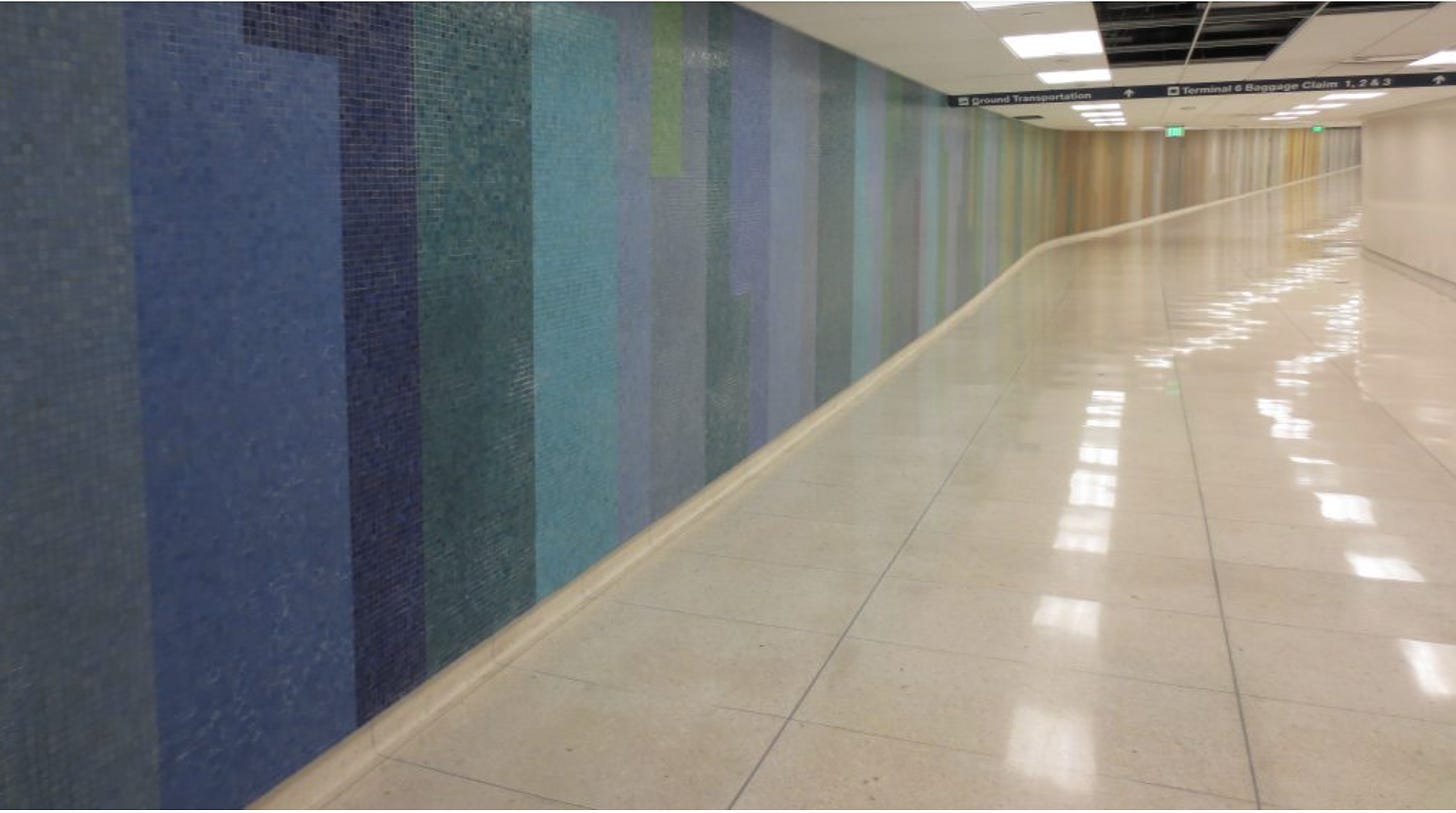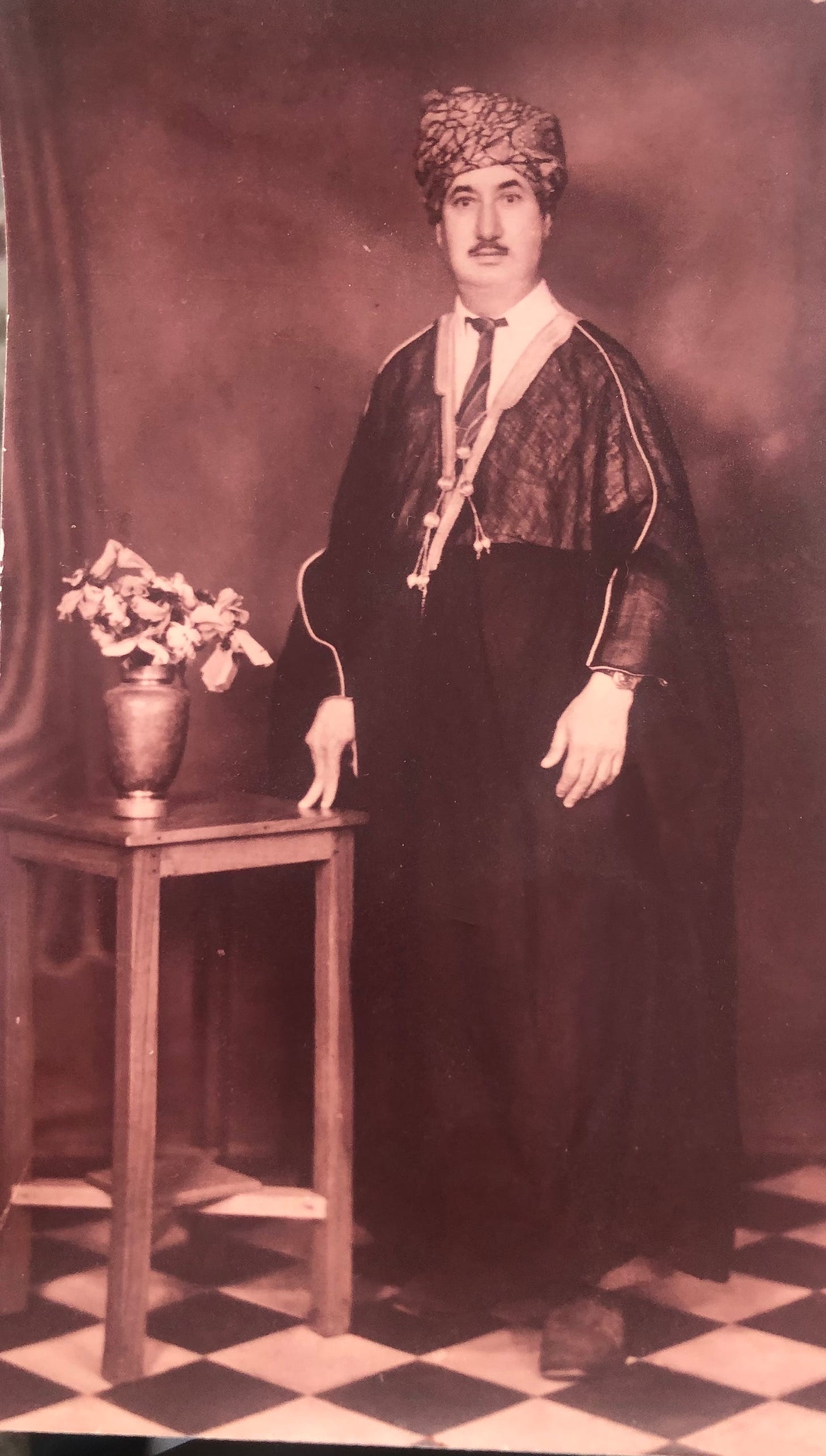Welcome back to Lucid! This Friday is Christmas Eve and there will be no live Q&A. We'll be back together on Dec. 31, 1-2pmET. Mark your calendars for an end-of-year discussion.
I canceled my winter travel plans because of the latest Covid-19 surge. I imagine that some of you did, too. Mine included visiting my father, who is in his 90s. He lives abroad and I haven't seen him for several years.
So many people have lost loved ones, including parents, to Covid-19, and will spend this holiday season grieving. A lesson of the pandemic is to see those we love while we can. And yet millions, myself included, have to postpone their reunions. We can only hope that next year we will all be in a better situation, at least in terms of public health.
For Christmas week, I want to share some reflections about family and travel and living at a distance from those we care about.
____________________________________
When you grow up in Southern California with immigrant parents (Scottish mother, Israeli father) and your closest non-nuclear family members are all 11-14 hours away by plane, you know that seeing family is a luxury. As a child I realized early on that our family’s habits were different from others: We had few trips to see the wonders of America, like the Grand Canyon, or even of our own state.
Any available vacation time and money my parents had were spent going to England (where many of my parents’ siblings lived) and to Israel, sometimes on the same trip. I was 2 when these journeys started and I still remember the ritual of walking past the colored tiles of the LAX arrival hall, deeply jet lagged and dragging a stuffed animal, after being gone for several weeks.
These trips taught me firsthand that there was no one way of acting or thinking about things in the world. My family in England would greet me with a hug and a calm tone, as though they'd seen me last week rather than three years ago, whereas the Israelis would squeeze me until I couldn't breathe. In England, it was rude to ask for seconds at dinner; in Israel, it was rude not to.
Occasionally we'd also go to Scotland, to see my maternal grandmother. I had trouble, when I was small, understanding her accent, but better that than the awkward pantomimes I had in Israel with my paternal grandmother, who spoke Ladino and Hebrew, languages I could not understand.
As I grew older, I developed a fascination with my paternal grandfather, who was born in Yemen, spoke 10 languages, and shuttled among Jerusalem, Aden, and the Egyptian town of Kantara. I often looked at this photo, and his hybrid cultural identity (shirt and tie from his job as an official of the British Empire, turban and robe from his Middle Eastern and Sephardic Jewish heritage) that most spoke to me. He died long before I was born, but I felt his presence, beckoning me to travel and discover the world.
My parents came to America for professional reasons rather than political ones. Still, I am pretty sure that my sense of our solitude as a family unit, and the experience of growing up with everyone you love far away, was one reason I was drawn to the stories of the German exiles from Nazism who resettled in Southern California, leaving everything and everyone they knew behind. Those stories started me on the path to studying Fascism, and determined my career path.
I don't know when I will see my father, and my parents and siblings are all long plane rides away (and in four different countries). I do know that I am incredibly fortunate to have the hope of seeing them once the pandemic subsides. For the individuals I often write about, who have had to go into exile when their countries are taken over by autocrats, the wait can be much longer.
Wherever you are this holiday season, reach out to the friends and relatives you consider family and let them know how much they mean to you. When you are able to see them again the reunion will be all the sweeter.






Awe..Ruth, big hug to you and love and gratitude for all you bring to our Lucid community. I for one feel grateful for your teachings and writings on authoritarianism and propaganda.
This is a fraught moment in our country's history as its democracy sits on a knifes edge of falling over into autocracy. Your special expertise and insights fit the authoritarian moment we're in hand in glove. It deepens our understanding of what's really happening and what we might expect all through the lens of history. Particularly, in your book "Strongmen" the authoritarian playbook with its five tools of rule I find to be a unique contribution.
Thank you for all you do Ruth and for sharing your story and family background with us. Have a great holiday season!
P.S.
Since we all can't be where we want this holiday season, I am reminded of a song by Stephen Stills. Its called "Love the One Your With". I'm going to slightly alter the lyrics a bit but in a way that doesn't change the underlying sentiment of the song to 'if you can't be with the ones you love then love the ones you're with'.
Thank you for sharing your personal story. It is fascinating, especially when compared to my own childhood. (I envy yours! In a good way.)
I’m sorry you cannot visit with your father and other relatives right now. It is wrong that the pandemic was used politically and that division has ended up extending it to an unknown date.
I wish you, yours and everyone here happy holidays, as best as can be had in our current situations.